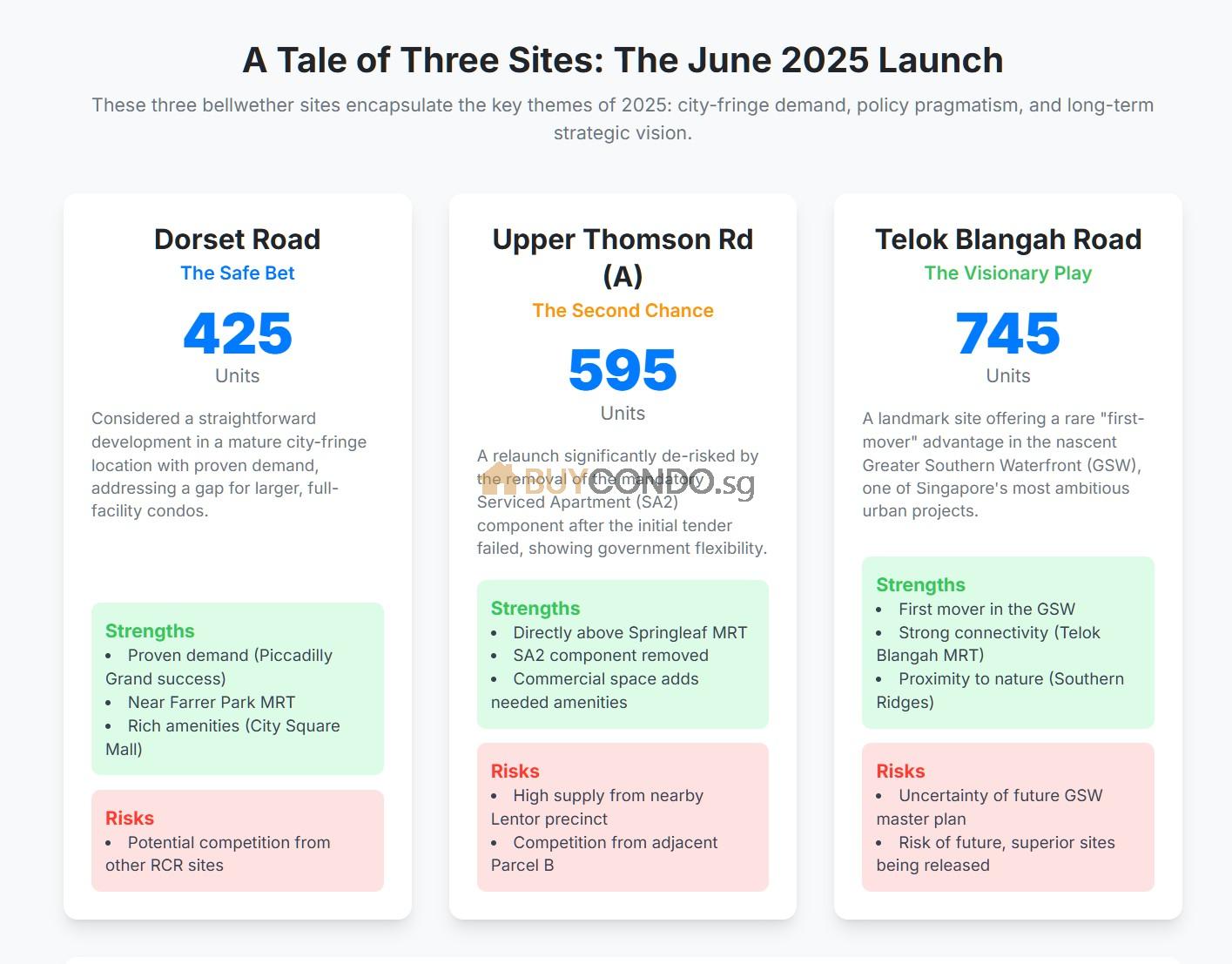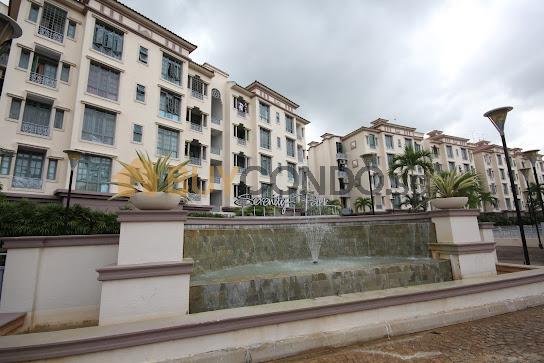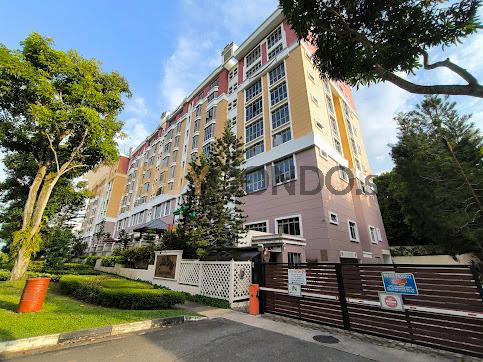Rental Price All-Time High: Should Landlord Sell or Rent out? Tough Choice.
The rental rates are crazy high now. Is it better for landlords to continue renting out for more income, or does it make more sense to sell since prices are also high?

Many owners will find today’s topic very relevant as they are caught between renting or selling, especially when today’s market is at an all-time high for resale properties.
Take Maplewoods, for example; the rental for three bedrooms I was renting out a unit there for $3,700 per month. Two years later, the rental amount increased to $6,000 monthly. And this year, this means that if a landlord were to continue renting, he could fetch a rent of $6,000 per month and make an additional $2,700 per month gain just on the rental. And this will net him an extra $32,400 passive annually. For most landlords, they guys, this is something that keeps them renting.
However, the owners who want to capitalize on this window of opportunity for the condo in the resale market can take the chance to gain a whopping $600,000 more in terms of return. Now, this is a massive $540,000 difference which could take another 7.5 more years of renting it out, provided the rental stays at $6,000 monthly.
As a landlord, you may face a dilemma when rental prices reach an all-time high. The thriving real estate market and increasing demand for rental properties have created opportunities for property owners. This article will guide you through deciding whether to sell or rent out your property. By understanding the current rental market, assessing your property’s potential, and considering your long-term goals, you can make an informed decision that aligns with your financial objectives.
Rent vs Sell calculator Table
That can help you evaluate whether it’s more financially advantageous to rent out your property or sell it:
| Renting | Selling | |
|---|---|---|
| Potential Rental Income | $X/month | – |
| Potential Sales Price | – | $Y |
| Operating Expenses | -$Z/month | – |
| Financing Costs (if applicable) | -$W/month | – |
| Net Monthly Cash Flow (Income – Expenses) | $X – $Z – $W | – |
| Annual Net Cash Flow | (Net Monthly Cash Flow) x 12 | – |
| Holding Period | – | X years |
| Total Net Cash Flow (Annual Net Cash Flow x Holding Period) | – | (Net Monthly Cash Flow x 12) x X |
| Potential Appreciation (if applicable) | – | $A |
| Total Potential Gain (Total Net Cash Flow + Potential Appreciation) | – | – |
| Other Considerations (e.g., tax implications, future market conditions) | – | – |
In the table above, please replace the variables with the actual values for your property.
For the “Potential Rental Income” and “Potential Sales Price,” research the market to determine realistic figures based on similar properties in your area.
Rental Market:
Research the local rental market to determine the demand for rental properties in your area. Look at rental rates, vacancy rates, and average time on the market for similar properties. This will give you an idea of the potential rental income you can expect. For 2023 Rental Market, we have already seen signs of rental weakening compared to 2022.
Financial Analysis (Should landlord Sell or Rent out?):
Calculate your property’s potential return on investment (ROI). Consider rental income, operating expenses (e.g., property taxes, insurance, maintenance), and financing costs (if applicable). This analysis will help you determine if the rental income justifies the property’s expenses.
Selling your property offers immediate financial gains. You can benefit from the high property value, capitalize on your investment, and use the proceeds to invest in other opportunities. However, selling means forfeiting long-term rental income and the potential for property appreciation. Consider your financial goals, tax implications when you want to reenter the market, and the possibility of reinvesting the sale proceeds wisely.
Introduction
The real estate market is dynamic, and rental prices fluctuate over time. When rental costs soar, it presents an enticing opportunity for landlords to capitalize on their property’s value. However, deciding between selling or renting out your property requires careful consideration. Factors include market conditions, property location, financial goals, and personal circumstances.
Understanding the Current Rental Market
Before deciding, it’s crucial to understand the current rental market. Research your area’s local real estate trends, vacancy rates, and rental price trends. Determine whether the high rental prices are a temporary spike or a sustained trend. Additionally, consider the supply and demand dynamics and the potential for rental income growth.
Factors Influencing Rental Prices
Several factors influence rental prices. Evaluate these factors to gauge the competitiveness and desirability of your property in the rental market.
Also, if the Condition is due for Upgrades: Evaluate the Condition of your property. Is it well-maintained and in good repair? Consider any necessary repairs or upgrades that may be needed to attract tenants and maximize rental value.
Assessing Your Property’s Potential
To make an informed decision:
- Assess your property’s potential as a rental.
- Consider its Condition, maintenance requirements, and marketability.
- Calculate the potential rental income by comparing it to similar properties.
- Determine if the rental income can cover the expenses associated with property ownership, such as mortgage payments, insurance, taxes, and maintenance costs.
- Weighing the Pros and Cons of Selling
- Weighing the Pros and Cons of Renting
Renting out your property allows you to generate regular rental income. It can provide a stable cash flow stream and build long-term equity. By becoming a landlord, you retain ownership of the property and have the potential to benefit from future price appreciation. However, being a landlord entails property maintenance, tenant management, and legal obligations. Consider whether you have the time, resources, and inclination to handle these responsibilities effectively.
Considering Long-term and Short-term Goals
When making a decision, consider both your long-term and short-term goals. Selling may be suitable if you need immediate funds or want to divest from the property market. Renting might be suitable if you seek long-term cash flow and investment growth. Assess your financial objectives, plans, and risk tolerance to determine the best action.
Seeking Professional Advice
To make a well-informed decision, it is advisable to seek professional advice. Consult a real estate agent, financial advisor, or property manager who can provide valuable insights based on their expertise. They can analyze your situation, evaluate market conditions, and help you weigh the pros and cons of selling versus renting. Their guidance can assist you in making a sound decision that aligns with your goals.
Making an Informed Decision
You can make an informed decision after considering all the factors, analyzing market conditions, and seeking professional advice. Evaluate the potential financial gains, risks, and circumstances. Remember, there is no one-size-fits-all answer. The decision to sell or rent out your property ultimately depends on your unique situation and goals.
Conclusion
Deciding whether to sell or rent out your property in a high rental price market can be a complex and personal decision. You can confidently navigate this decision-making process by understanding the current rental market, assessing your property’s potential, and considering your long-term goals. Take the time to evaluate the pros and cons, seek professional advice, and make a choice that aligns with your financial objectives and personal circumstances.
FAQs
1. Should I sell my property if rental prices are at an all-time high?
The decision to sell your property depends on various factors, including financial goals, market conditions, and long-term plans. Assess the potential gains from selling and consider if they align with your objectives.
2. What are the advantages of renting out my property?
Renting out your property can provide a stable cash flow, potential property appreciation, and long-term equity growth. It offers an opportunity for passive income and diversification of your investment portfolio.
3. What should I consider before becoming a landlord?
Before becoming a landlord, consider your ability to handle property management responsibilities, such as tenant selection, property maintenance, and legal obligations. Assess whether you have the time, resources, and inclination to manage a rental property effectively.
4. How can I determine the rental income potential of my property?
Research the local rental market, compare rental prices of similar properties, and consider the demand for rentals in your area. You can consult real estate professionals or property manager to assess the rental income potential.
5. Can I choose to sell later after renting out my property?
The property can be sold with tenancy, and it is usually stated that tenancy agreements are primarily drafted. If we want to draft the tenancy specifying more clearly on the terms, it is best to communicate better with your Property Manager.
Popular Questions asked online:
should i sell my house or rent it out calculator
i want to sell my house and rent instead
should i sell my house and rent 2023













